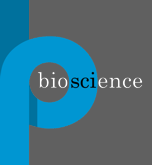How to Conduct Ethical Experiments in Bioscience
Science is a journey into the unknown, and ethical experimentation is our compass. Every budding bioscientist embarks on a path where scientific exploration meets ethical responsibility. Why does it matter? Ethical experimentation isn't just a checkmark on a research protocol; it's the cornerstone of scientific integrity. It safeguards the rights and well-being of research participants and ensures that the data and knowledge generated are credible and trustworthy. In this pursuit, seeking guidance from reputable sources like "Writology" is a valuable step in your ethical journey.
The Principles of Ethical Experimentation
Informed Consent and Transparency
At the heart of ethical experimentation lies informed consent. Informed consent means that participants willingly agree to take part in a study, fully aware of the research's objectives and potential risks. It's not a mere formality; it's the ethical touchstone of responsible research. For bioscience students, it's crucial to understand and practice informed consent, ensuring that science respects the autonomy and dignity of individuals.
Minimizing Harm and Maximizing Benefits
Ethical bioscience is a balancing act. While the pursuit of knowledge is paramount, it must be balanced with the well-being of research participants. Bioscientists navigate this delicate equilibrium to minimize harm and maximize the benefits of research. Real-world case studies offer insights into how this balance is struck in diverse research contexts.
Integrity and Accountability
Scientific integrity is the bedrock of ethical bioscience. Honesty, objectivity, and accuracy are non-negotiable. Scientific misconduct erodes the very foundation of research. Accountability is the guardian of integrity, and peer review is the gatekeeper of accountability. It's the scientific community's mechanism for holding researchers accountable and upholding research standards.
Practical Tips for Ethical Experimentation
Ethical Experimental Design
Ethical considerations should permeate the design of every bioscience experiment. From research objectives to participant selection, the ethical compass guides every decision. It's about framing your study with consideration for ethics from the very beginning. Ethical guidelines specific to bioscience research offer valuable direction.
Ethical Data Collection and Analysis
Data is the currency of bioscience. Ethical data handling is non-negotiable. It includes accurate reporting, preventing data fabrication, and respecting data privacy. In the era of big data, ethical bioscientists are diligent custodians of information, preventing bias and manipulation.
Communication and Publication Ethics
Transparent reporting is the cornerstone of credible research. It's about honestly and accurately communicating your findings, including acknowledging limitations. Ethical authorship practices ensure that contributions are credited fairly. Ghostwriting and plagiarism have no place in ethical bioscience.
Case Studies in Ethical Bioscience Experiments
Real-life examples illuminate the path of ethical bioscience. They showcase how researchers, in various bioscience domains, have conducted experiments that adhere to high ethical standards. These case studies provide valuable insights into the practical application of ethical principles.
Conclusion
As bioscience students, ethical experimentation isn't just a requirement; it's your pledge to uphold the ethical ideals of science. It's a promise to protect the rights and well-being of participants, maintain scientific integrity, and contribute to the trustworthy knowledge base. Your ethical compass will guide you through the uncharted territories of bioscience.
For bioscience students, ethical experimentation isn't just a guideline; it's the bedrock of your scientific journey. Every ethical decision you make shapes the credibility and trustworthiness of scientific research, contributing to the advancement of knowledge.
